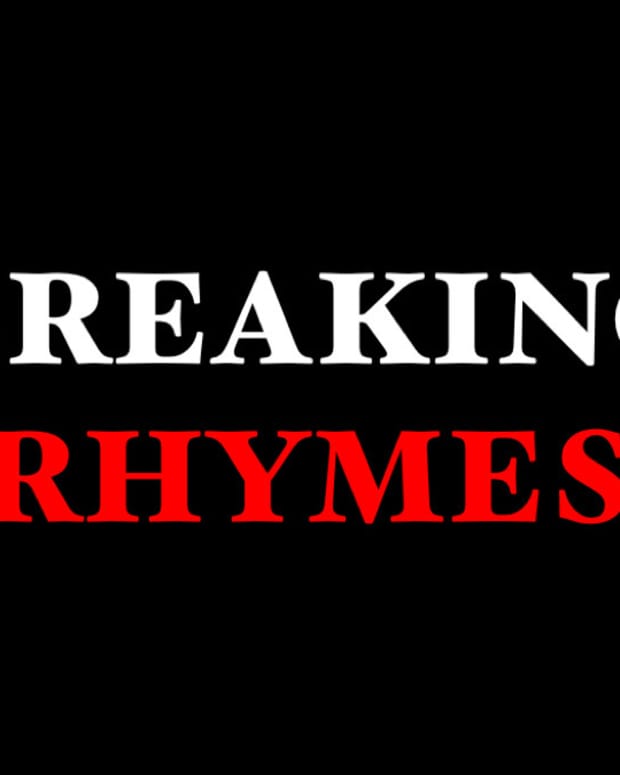Low Conscientiousness: ignoring the rules in the five factor model of personality
Having discussed agreeableness, the often fatal career defect politicians and managers need to be able to fake it is time to look at Conscientiousness, which has to do with the ability to defer immediate rewards and follow plans and procedures. Thereis no optimum level for this trait though some occupations suit high scorers and others suit low scorers.
In most organisations leaders benefits by being low in conscientiousness while requiring workers high in conscientiousness. This explains why private soldiers, trained to obey without question rarely become generals who have to think creatively and independently
The High Scorer
You invariably wake at 8:17 am and lie in bed for 3 minutes 15 seconds. When you rise you boil an egg for exactly 4 minutes 45 seconds while bread is toasting. The Dishwasher has a place for each days dishes and you panic if Tuesday's dishes are in Wednesday's slot. You catch the 9:17 to work and read the paper till precisely thirty seconds before the train is due to arrive at your station. At work you clear your intray by 10:am and your email by 10:15am. Your day is planned and you stick to the plans regarding interruption or change as a cause of annoyance. You go home and follow a strict routine before sleeping.
The low scorer
You wake and rise or not depending on your mood and how much work is piling up at your office. You flip a coin to decide what to have for breakfast then realise you have no choice because on impulse you went for a drink with friends last night. So it's raspberry yogurt again. On impulse you stick a spoonful of honey into it. Delicious. You notice the rubbish needs taking out so you take it out but nearly forget to take your keys with you. You come back and realise you could have taken the rubbish out on the way to to work not wasted time. You miss your train. You arrive at work a bit late but you are lucky. The boss is later. Only the robot who is always there early is at their desk. They are so intent on thee work they do not notice you so you cough and when they look up you hint you got their five minutes after them. Your day is characterised by diversions and unexpected turns, At the end of the day most things are done and you work an extra hour to cover the important ones. On the way home you decide to take a different route to the station and discover a new cafe. You get home late and collapes into bed happy.
High Scorers
The High Scorer is characterised by an ability to plan ahead and exercise the slef control needed to carry out the plan. They are often detail persons keen to check documents for spelling and grammer (if you noticed the deliberate mistake you may be high on this trait). Careers for which this is good include Airline pilot and Surgeon: if you are a man undergoing prostate surgery or a woman having an operation on the womb you do NOT want to hear ”hmmm...... lets try that and see what happens” any more than you want to hear ”OOPS”. Accountants, at the lower level at least often benefit from the ability to make two and two four though at the higher level ”whatever you want” is often a preferred answer.
The good news is you can give a hgh scorer a task and know they will finish it. The bad news is they may get thrown by anything unexpected and be rigid and incapable of spontaneous responses.. They may also be conservative feeling the way they know things are done is the only way and others have it all wrong.
Low Scorers
Low scores are associated with addictions especially to gambling and to impulsive behaviour without thinking of the consequences. High scorers are disciplined, controlled and organised, low scorers are impulsive, spontaneous and lack will power. They tend to be unable to stop doing things even if these are damaging. They may struggle with laziness and inability to focus.
Conscientiousness is just about the most reliable predictor of modern occupational success available. The higher your conscientiousness the better you do. Of course there comes a point where this rule no longer holds. Armies require high conscientiousness in most ranks but generals must be able to respond to the unexpected even if it ruins their plans ”There's an unexpected column of tanks in the way but press on lads, stick to the plan” is perhaps not an indicator of a good general. Similar cases can be cited from the top layers of industry and commerce but especially from politics.
Oddly enough highly intelligent people are less conscientious than their perhaps less gifted counterparts: They can often improvise a solution to a problem on the fly without following procedures.
Information Technology seems to me to be a field where the practitioner must be highly conscientous in their dealings with others - putting a software component in the wrong place means, at best, that it will not work - but flexible i.e less conscientious, in their own area ”It's not the official way to do it but it won't break anything and I have a deadline.”. I should add that most IT people try to do things the ”official way” whenever they can.
If high conscientiousness is good why are there so many low scorers around? Well high conscientiousness is really only a benefit in a predictable controllable environment. Only in the last few centuries have we had to sit in one place and follow a routine in order to make the money we need to survive. Even in agricultural economies rapid improvisation was often needed for vagaries of the weather and in a hunting society it was better to go hunting without a plan rather than stick to a plan bound to fail. In an environment that is unpredictable, constantly changing, maybe lawless and potentially voiolent and physically active the low scorer will do well on the battlefield, the wresting ring, the sports field, as a paramedic or a rescue worker or fireman. If we replace physically active with mentally active we land on the stock exchange trading floor . You can doubtless think of your own examples.
The Wrap
In my view high and low scorers would do well to try to move to the centre of this continuum on this trait. High scoreres need a set of goals, feel lost without a goal, and should occasionally do something random with no goals in mind: for the high scorer I recommend pair of dice and occasionally letting the dice decide (keep it legal!!!!). Low scorers need to learn a bit of discipline. I learned the hard way that there must only be a limited number of places to put my glasses when I am bathing or sleeping and I have a checklist each morning that includes ”Keys in pocket?????”
next The Five Factor Personality Model: Openness mysticism and more
Comments
AlexK2009 (author) from Edinburgh, Scotland on May 20, 2010:
Deborah, my instincts are with you. However I have had to balance practicality. As in "It's a lovely day I will go out but I want my mini umbrella in my backpack"
The high scorer may not be able to stop if they go to a casino but the intelligent one takes a sensible friend who holds the taxi fare home.
Ice and fire. Each needs the other in terms of personality
Deborah Demander from I am Everywhere I Want to Be! on May 20, 2010:
I hate to defer immediate gratification. What if I drop dead doing something I dread? No sir. It is a life of impulse and pleasure for me.
Namaste.
AlexK2009 (author) from Edinburgh, Scotland on April 26, 2010:
Thanks again hello hello. I like to think of guidelines not rules, as I said to Loua.
Hello, hello, from London, UK on April 26, 2010:
An old saying - rules are made to be broken - but as you said certain rules have to be there. Thank you for a very interesting point of view.
AlexK2009 (author) from Edinburgh, Scotland on April 26, 2010:
Thanks Loua. We need guidelines and standards rather than rules. Rules encourage people to find loopholes.
loua from Elsewhere, visiting Earth ~ the segregated community planet on April 25, 2010:
Rules are the target of every deception as is conscience... Its the Achilles heel of humanity...
Very interesting aspect of human behavior as is the harmony of abgreement and symmetry...
Thanks, Alex, for sharing such a perception ~ you are right the center of balance is the key...
msorensson on April 25, 2010:
ha ha ha...
Please forgive me.. I never made a distinction..lol
AlexK2009 (author) from Edinburgh, Scotland on April 25, 2010:
Aye, natural talent probably governs how fast you master the rules.
But sometimes a newcomer sees how to break the rules without learning them thoroughly first.
There are two types of rules, the unbreakable and the breakable. The rules of chess are unbreakable. The strategies a player uses can differ. I doubt Fischer absorbed all the rules grandmasters had accumulated, but he still came close to turning the game on its head.
msorensson on April 25, 2010:
The people at the top are mavericks, Alex. They are there because they have learned, among other things, this : In order to break the rules, you first have to master them.
In the Buddhist tradition, it is the same with all the traditions we were programmed for/exposed to: Be so steeped in the tradition you eat breathe think it, then and then and only then can you abandon it. Just like everything in life :-)
AlexK2009 (author) from Edinburgh, Scotland on April 25, 2010:
Interesting point Melinda. The people at the top also tend to be lower in agreeableness.
msorensson on April 25, 2010:
Well done. Perhaps the more intelligent people are less concerned with how others behave/think/act because intuitively they know that "He conquers others is mighty/strong/powerful but he who conquers himself is mightier still."
Gail Sheehy made a study of 500 CEOs, Presidents and Vice Presidents. The "mighty" in my statement above are all either first born or only child. They are the ones who move heaven and earth to get what they want, but that want has got little to do with position or economics..the usual carrots.
It has got a lot more to do with what they perceived their main idol figure [mother or father or both parents] would perceive them. Fascinating.



















